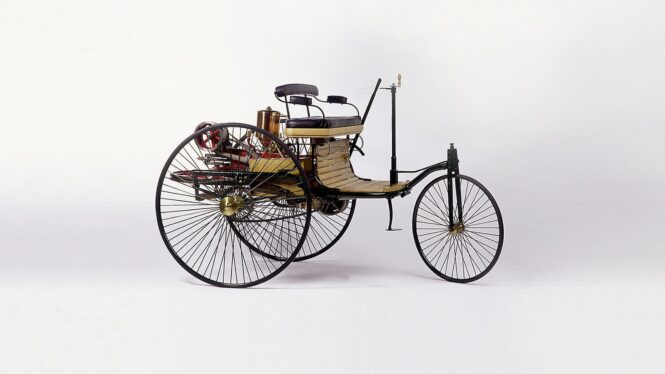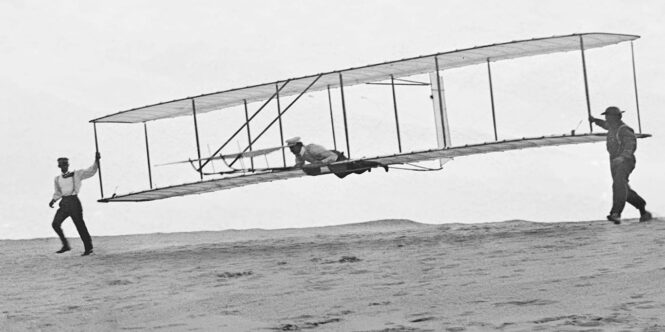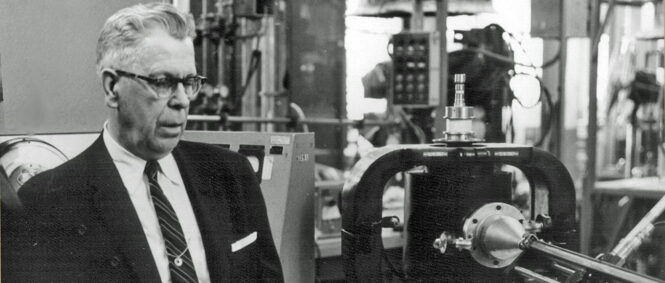Have you ever wondered about the amazing stories behind some of the greatest inventions? It’s incredible what a single moment of genius or an accidental discovery can mean for society. From the invention of surgical anesthesia to the discovery of penicillin, you’ll be amazed at some of these incredible stories.
Accidental Discoveries
Accidental discoveries have been responsible for some of the most revolutionary inventions of all time. While many inventors spent years trying to find a solution to a certain problem, some were incredibly fortunate to stumble upon their solutions through the help of pure luck or even assistance from organizations like InventHelp.
For example, the discovery of penicillin in 1928 by Alexander Fleming was more an accident than a scientific breakthrough. The bacteria-fighting mold had grown on Fleming’s petri dish after he’d left it forgotten for a few days, and he soon realized that it could be used to fight both infections as well as other illnesses.
Other accidental inventions include the pacemaker, post-it notes, velcro, and even LSD (invented in 1938 by Albert Hofmann). As such, innocent mistakes or unexpectedly happy accidents can sometimes lead to magnificent discoveries which can benefit mankind in untold ways. Surely this is testament enough that you should never give up in your pursuit of invention!
Famous Inventions
Throughout history, inventors have come up with all kinds of ideas to make daily life easier and more enjoyable. Here are some of the most infamous inventions that have changed the world, including some accidental coincidences and shrewd thinking.
1. Automobile

German engineer Karl Benz is credited with having built the first automobile. The successful three-wheeled vehicle was powered by a single-cylinder gasoline engine that he completed in 1885, although earlier versions of automobiles powered by steam engines had been built in France and England.
2. Lightbulb
In 1879 Thomas Edison completed the construction of his first practical lightbulb after many failed attempts to create a commercially viable version. The bulb used a carbon filament that burned for 14 hours at a time compared to previous versions using oxygenated filaments that last mere minutes.
3. The telephone
Scottish-born Alexander Graham Bell was awarded the patent for his invention in 1876 after overcoming numerous technical challenges during its development including poor signal strength, background noise interference, and slow transmission speeds.
4. The airplane

Although other inventors contributed elements and applications of flight before him, it is widely recognized that Orville and Wilbur Wright were responsible for the first controlled human flight achieved on December 17th, 1903 near Kitty Hawk North Carolina; an accomplishment confirmed only four years later by an official investigation by the United States War Department into their experiments.
5. Personal Computer
In 1975 two engineers working at Intel Corporation designed an integrated unit that would become known as “The brain”, or as we know it today -the PC (personal computer). The device allowed users to work within one unit rather than requiring multiple components scattered around their homes or offices to be interconnected through cables; saving considerable time, wastage from damaged components, as well as money when purchasing parts.
6. Inventions that Changed the World
Throughout human history, humankind has demonstrated remarkable ingenuity and innovation. From unraveling knotty problems to sheer genius, inventors have changed the world with their inventions, many making life easier and opening up possibilities that we hadn’t even imagined. Here are some of the most famous inventions that had a profound impact on human civilization.
7. The Wheel

One of humanity’s earliest recorded inventions and one of its most important, the wheel transformed travel, trade, and war-fighting by making transportation much easier. Various forms of wheeled vehicles remain popular today both for personal use and mass transport.
8. The Printing Press
Developed in the mid-15th century in Germany by Johannes Gutenberg, this groundbreaking invention allowed for the easy replication of written materials on a large scale. This revolutionized education as it allowed information to be disseminated incredibly quickly across large areas effectively bringing knowledge to a far greater number of people than ever before.
9. Gunpowder
Gunpowder, a groundbreaking blend of saltpeter (potassium nitrate), sulfur, and charcoal, was first documented in 9th-century China. This innovative mixture significantly transformed warfare by allowing soldiers to launch projectiles from a safe distance, leading to a substantial rise in casualties within enemy ranks. This was a stark contrast to previous battles that relied on hand-to-hand combat or projectiles fired from bows with limited range. Additionally, gunpowder played a crucial role in early archaeological discoveries, as it facilitated the drilling of holes into rock surfaces for the extraction of frescoes or sculptures without the need for manual destruction.
Unusual Inventions
Throughout history, there have been many unusual inventions that started with a low-key moment of “Eureka!” as well as some amazing accidental discoveries. From strange to use, here are some of the most notable inventions and discoveries that changed the world in a big way.
The Microwave Oven

No one knew that accidentally discovering microwaves could lead to creating an appliance found in almost every kitchen today—the microwave oven! The inventor, Percy Spencer, was working on radar sets in 1945 and while standing near one of them, he noticed his chocolate bar had suddenly begun to melt. After experimenting further by purposely exposing food samples to the energy field created by the radar tube, he realized they were cooking at lightning speed! Soon after his discovery, he filed a patent for the microwave oven and released it onto the market.
Teflon
Scientists discovered this unique substance as early as 1938 while studying molecules under high pressure. A technician unaware of its potential came across this “unusual” molecule during experiments and named it TEFLON after its remarkable non-stick properties showed themselves. This miracle molecule has since gone on to revolutionize everything from medical implants to nonstick cookware, making our lives easier and healthier overall.
Velcro
Swiss engineer George de Mestral was out on a hike when he noticed burrs had attached themselves to his pants and socks in the same way that Velcro works today — by using small hooks to catch onto loops or hairs on clothing or other surfaces! Intrigued by this idea, Mestral researched how burrs attached themselves so easily and replicated what happened in nature with materials like nylon or cotton which eventually became known as Velcro.
Inventions that Failed
Some inventions, while inspired, may have had limited usefulness and ultimately failed. Some of these amusingly unhelpful items are classic examples of what can happen when a clever idea is combined with the enthusiasm to make it happen, but no foresight into how it might fit into everyday life.
One example is the Ford Edsel. The Edsel was an expensive sedan car designed by the Ford Motor Company in 1957. After spending $250 million on its development and advertising campaigns, Ford’s controversial creation flopped due to poor engineering and design choices that alienated potential customers.
Other entertainingly misguided inventions include smokeless cigarettes (developed in the 1950s), Garfield phones (with suction cups so you don’t drop them), and meat popsicles (a wartime ration treat). Other fun yet unsuccessful inventions were Sir Benjamin Thompson’s automatic fire balloons from 1783 – which were made of lightweight paper and launched using explosives-and J M Barrie’s failed attempt at “toe tennis” in 1914. While each of these ideas was noteworthy for its reasons, none of them had long-term staying power when it came to mass appeal.
Historical Context
Understanding the historical backdrop of inventions like the printing press and the wheel helps us grasp their true impact. The printing press emerged in a time when Europe thirsted for knowledge but had limited access to books. Created by Johannes Gutenberg in the 15th century, this invention revolutionized the way information spread, making books affordable and accessible. Similarly, the wheel came into existence around 3500 B.C. in Mesopotamia. Before the wheel, transporting goods was a labor-intensive task. The wheel simplified this, boosting trade and agriculture. If you want to find out more, studying the societal and technological challenges of these times can offer valuable insights.
Global Perspective
Innovation knows no borders; it’s a global phenomenon. While we often hear about inventors from the West, it’s crucial to recognize contributions from around the world. For example, the concept of zero originated in India, and papermaking technology came from China. In Africa, inventors have developed unique solutions for water purification and sustainable agriculture. These examples show that human creativity is universal and not confined to any one culture or region.
Modern-Day Innovations

In today’s world, innovation continues to shape our lives in profound ways. Renewable energy technologies like solar panels and wind turbines are tackling the urgent issue of climate change. Artificial intelligence is revolutionizing sectors from healthcare to transportation. Biotechnology is opening new frontiers in medicine, including gene editing and personalized treatments. These modern-day innovations address current challenges and set the stage for a more sustainable future.
Ethical Considerations
With great power comes great responsibility. Inventions like artificial intelligence and genetic engineering hold immense potential but also pose ethical dilemmas. For instance, how do we ensure AI algorithms are free from bias? Or what are the ethical boundaries in gene editing? These questions require careful consideration from both inventors and society. For more information on this topic, ethical frameworks and guidelines are available to help navigate these complex issues.
Inclusive Inventors
Innovation thrives in diversity. While the mainstream narrative often focuses on a select few, many inventors from diverse backgrounds have made significant contributions. Women like Grace Hopper, who played a pivotal role in computer programming, or minority inventors like George Washington Carver, who revolutionized agricultural science, deserve recognition. Additionally, inventors with disabilities, such as Stephen Hawking, have made groundbreaking contributions in theoretical physics. Acknowledging these inventors not only enriches our understanding of innovation but also inspires a broader audience to participate in creative problem-solving.
Conclusion
As we look ahead to an era filled with technology-driven innovation, let us take a moment to celebrate those who have inspired us so far — the creative minds behind some of mankind’s greatest inventions.
 Imagup General Magazine 2024
Imagup General Magazine 2024



